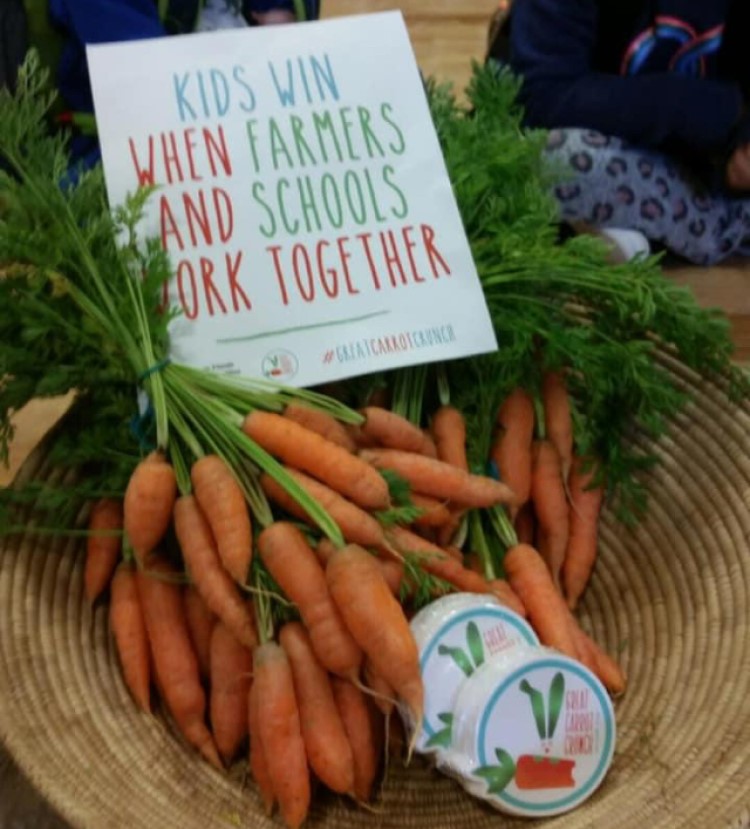
New Mexico students enjoy some carrots. AFSC
Imagine sinking your teeth into a juicy peach from a local orchard during the first weeks of school. Or choosing which local veggies you want from the school’s salad bar. Come into the cafeteria on a frosty winter morning to the delicious smell of fresh blue corn atole (traditional New Mexico porridge).
This past school year, New Mexico kids in five school districts across the state got to savor great local food. Much of that food came from small-scale, sustainable farms and farmer co-ops supported by AFSC New Mexico, which manages the state-funded program that gets nutritious produce to these children while also strengthening the local economy.
In 2015, AFSC successfully advocated for our state legislature to allot monies to the “Expand New Mexico-Grown Produce in School Lunches” program. The school districts involved purchase locally-grown fresh fruits, vegetables, and traditional foods. The majority of the 30,000 students in these districts qualify for free or reduced-price lunch programs, and the majority are students of color.

It is important for AFSC and the farmers we work with to make food accessible to all people, not just those who can afford local, organic food. The USDA has long offered subsidies to agribusinesses growing corn and soy with unsustainable practices, but there are far fewer subsidies for small organic farmers. We are proud of the New Mexico state government for making it possible for local farmers to get their fresh, nourishing crops to local school kids.
The COVID-19 pandemic has put into stark reality the importance of supporting a thriving local-food system. As grocery stores went through shortages, one principal told us, “We were able to continue to provide grab-and-go breakfasts and lunches for our families during the shut-down… AFSC funds supported us in providing our students and families access to clean, healthy, fresh fruits and vegetables. We cannot thank you all enough! Salad turnips, radishes, and carrots were the most popular vegetables with our students.”
Because of the pandemic, this principal is unsure what will happen in the fall, but she would like to send home fruits and vegetables to ensure that her students can still access healthy foods.
Not only does this program support nutrition, local economies, and food system resiliency, it also supports the food culture of New Mexico. In addition to fresh produce, the only processed foods that the schools can buy through the program are traditional foods such as frozen green chile, red chile powder, pinto beans, and blue cornmeal. These are crops that have been grown here for centuries.
The name of the AFSC New Mexico program is People of the Land, and these crops are essential to that land. I’d be hard pressed to think of smells that encapsulate home more than pinto beans and red chile sauce on the stove or green chile posole (a corn-based soup that uses hominy). As more of these crops are grown in Mexico or elsewhere, supporting our local farms is vital to keeping our food culture alive and place-based.
